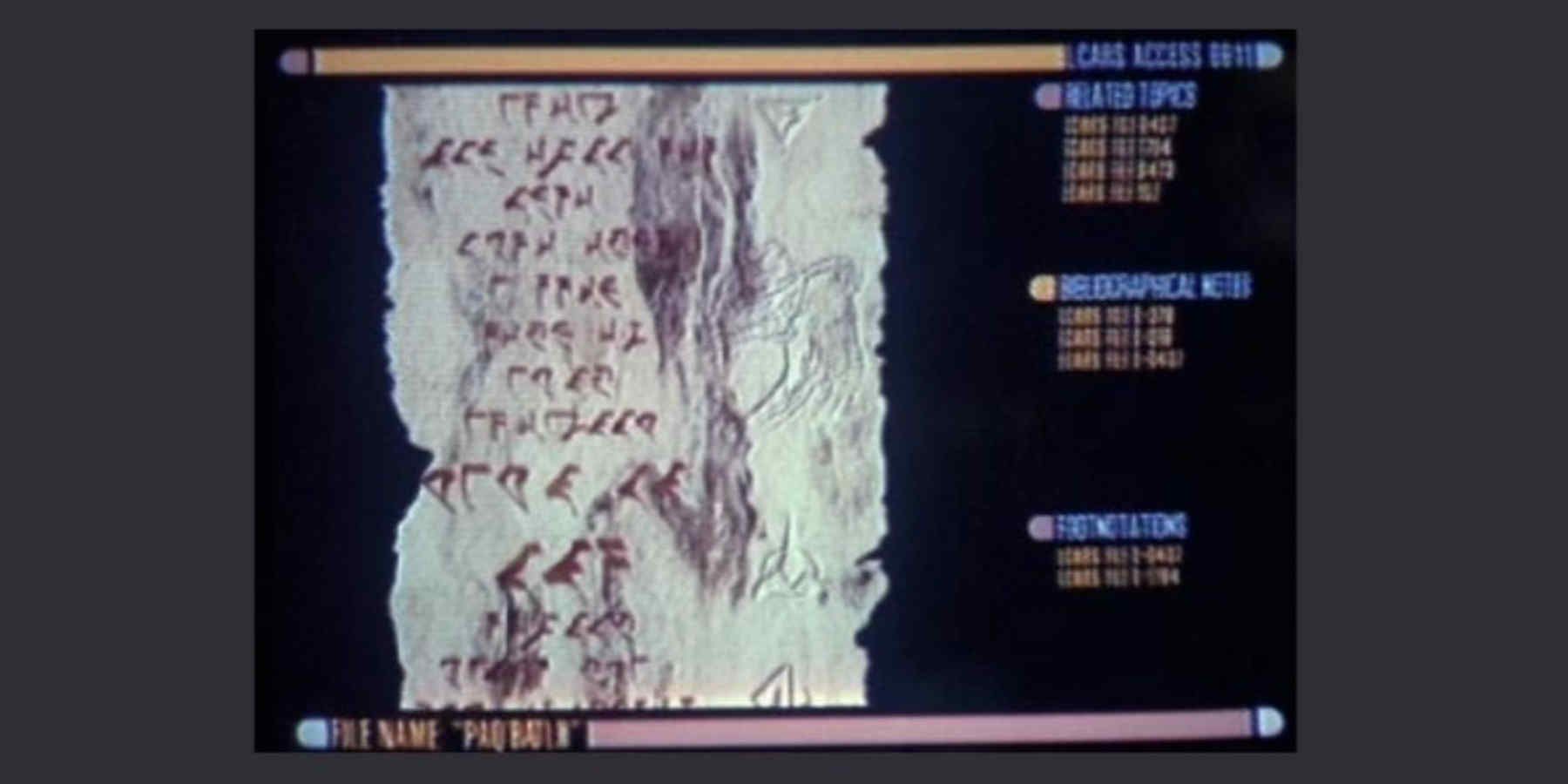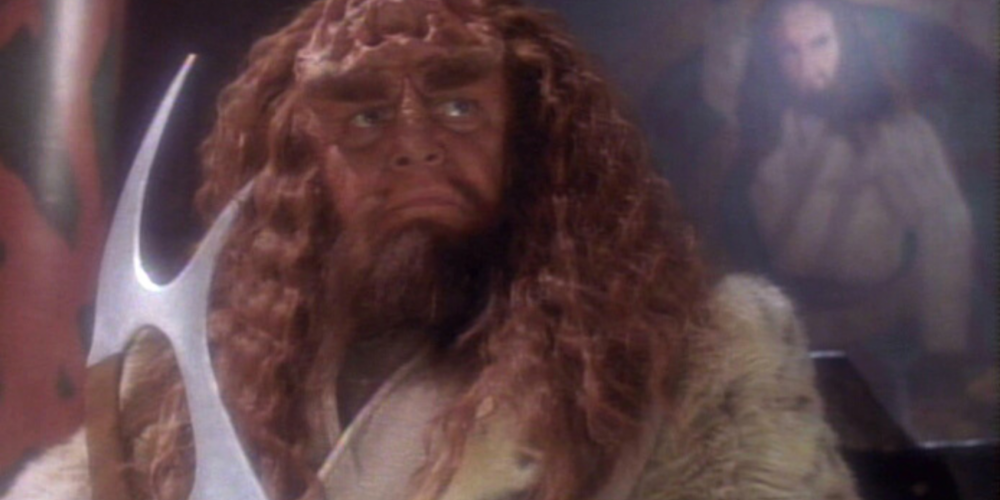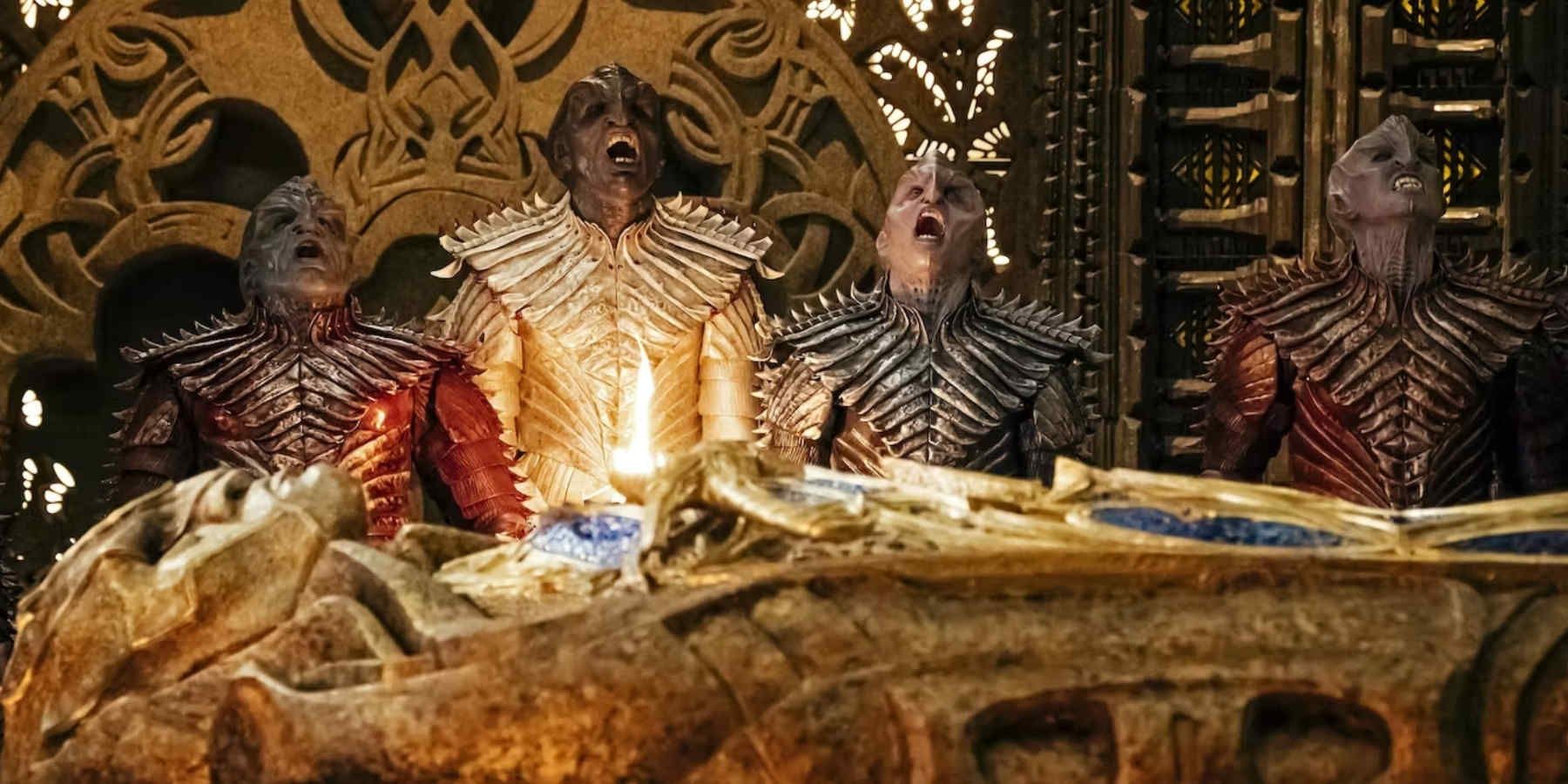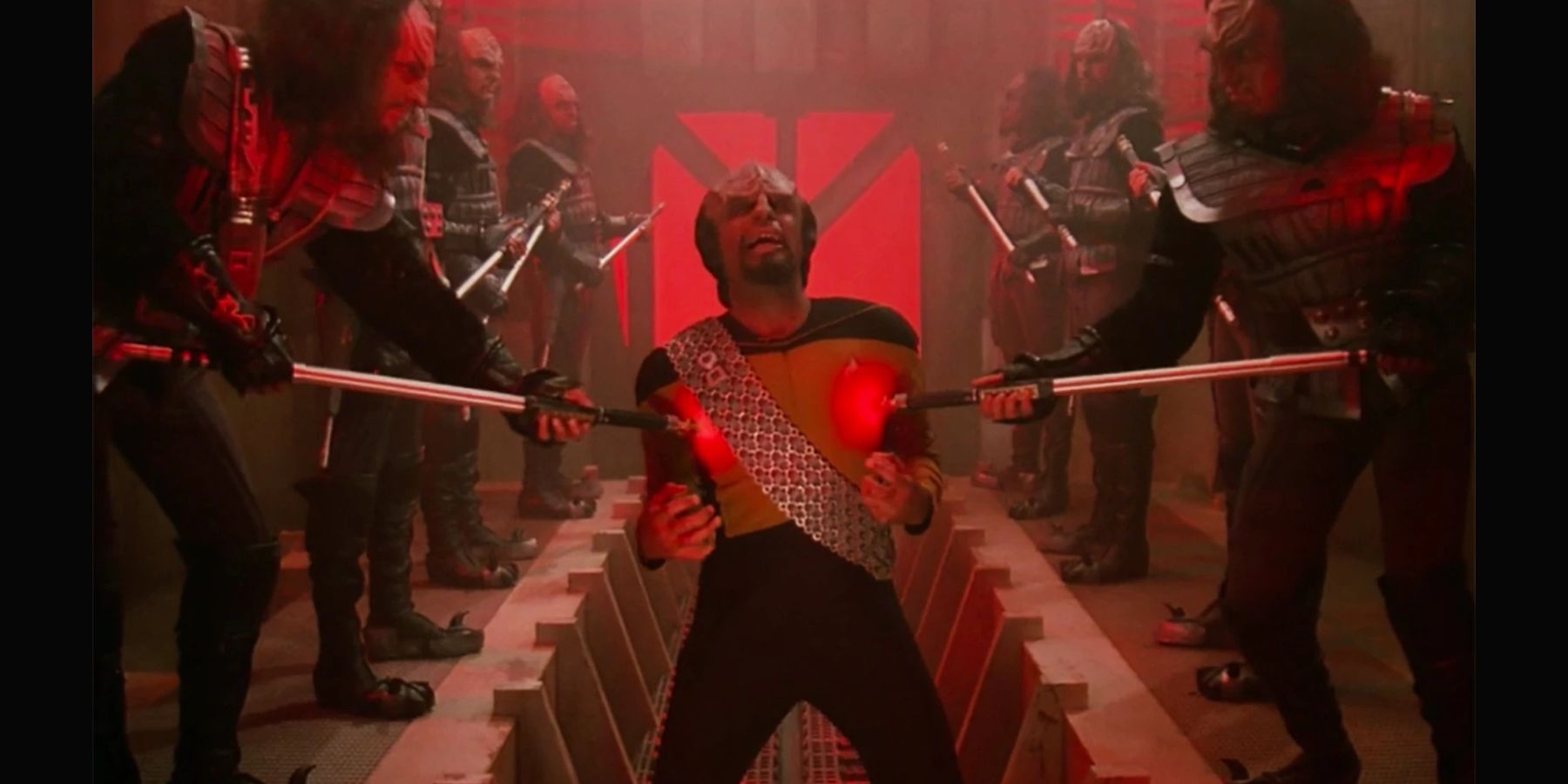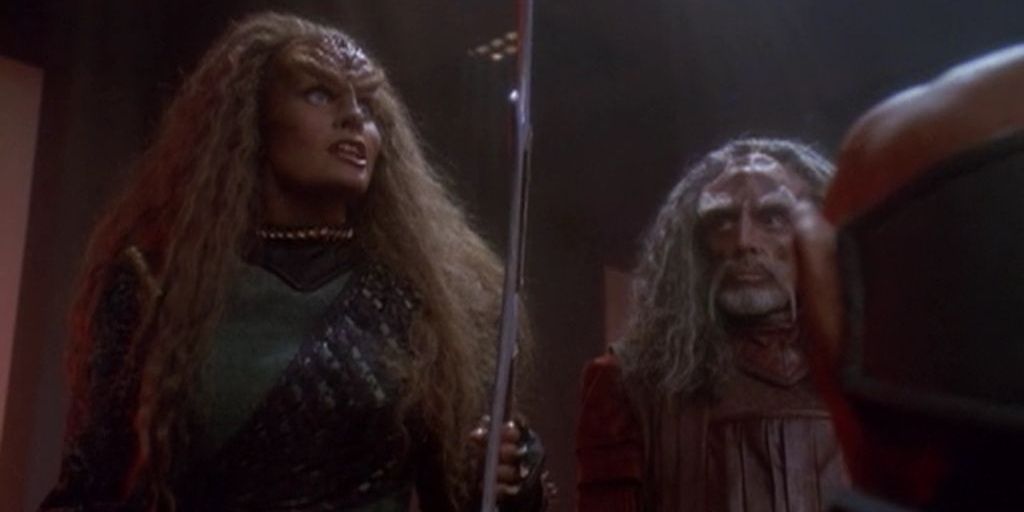
Unveiling the Intricate Beliefs of Klingon Religion in Star Trek

Unveiling the Klingon's spiritual realm: Discover the profound interplay between their warrior traditions and religious practices in Star Trek's Klingon culture Explore sacred objects, polytheistic beliefs, death rituals, and unique forms of worship
Star Trek fans are familiar with Klingons and their notorious love for indulgence in both food and combat. However, it may come as a surprise to many that this race of formidable warriors also possesses a deeply rooted spiritual dimension. One notable character, Worf (portrayed by Michael Dorn), often grapples with the challenge of reconciling his Klingon heritage with his ambitions in Starfleet within the series Star Trek: The Next Generation. This struggle occasionally forces him into the difficult position of prioritizing one identity over the other. Nevertheless, there are instances where circumstances harmoniously allow him to embrace both his role as a Starfleet officer and as a Klingon warrior.
The Klingon religion emerges as the meeting point where Worf's values can peacefully coexist. For instance, in Season 1, episode 20 titled "Heart of Glory," Worf and fellow Klingons engage in solemn death rituals, including howling towards the sky. Worf participates in these rituals alongside both an ally and even an enemy defeated by his own hand. It becomes evident that spirituality holds significant importance within the Klingon Empire. Mourning the dead through a specific set of rituals is merely the surface of a highly organized and intricate belief system.
Sacred Objects
Klingons, being famously passionate about battle, are often assumed to prioritize their weapons above all else. However, in Voyager, it was revealed that they also hold spiritual items and texts in high regard. These include the Paq’batlh (also known as the Book of Honor), the Sacred Scrolls of the Kuvah’magh, and the Eleventh Tome of Klavek, which are considered to be among the most significant spiritual texts.
These texts contain the wisdom that has been passed down from the legendary Klingon warrior, Kahless the Unforgettable. The Kuvah’magh is essentially the Klingon equivalent of the Emissary, prophesied to have a potential connection to Starfleet. There are certain aspects of Klingon religion that cannot be tangibly grasped, such as the holy month of Nay’Poq, the sacred planet of Boreth, and the revered pilgrimage site known as the Caves of No’Mat. Nonetheless, any physical object linked to Kahless the Unforgettable holds immense value for those who worship in his name.
A Polytheistic Belief System
Star Trek often reminds fans that Klingons have a deep appreciation for grand tales. One such tale is that of Kahless the Unforgettable, a legendary figure in Klingon history who gained his reputation by defeating the cruel tyrant Molor. Kahless went on to unite the powerful political houses and establish the formidable Klingon Empire. Under his leadership, Klingon spirituality thrived and endured long after his passing.
Another significant figure in Klingon lore is Kortar, the very first Klingon ever created. According to Klingon religion, Kortar was given a mate but ultimately betrayed the gods who brought him into existence. As a consequence, he was punished. This story is referenced in the wedding vows of Worf and Jadzia Dax (Terry Farrell) in Season 6, Episode 7 of Deep Space Nine, titled "You are Cordially Invited." However, the less romantic aspect of Kortar being banished to ferry dishonored souls to the realm of Gre'thor was excluded. Nevertheless, it sheds light on the intricate rituals surrounding death in Klingon culture.
Klingon Death Rituals
The Klingon way of life entails charging into battle without hesitation and embracing death as a familiar companion. As a result, it is not surprising that the Star Trek spiritual tradition surrounding death, whether on the battlefield or elsewhere, is as profound as their passion for combat. According to Klingon religion, there are three possibilities for where the deceased might go after passing.
Those who die without honor are escorted by Kortar on the Barge of the Dead across the River of Blood, enduring eternal torture by the wild creature known as Fek'lhr. On the other hand, those who die with honor are warmly greeted by Kahless the Unforgettable in Sto-Vo-Kor. As depicted in the premiere episode of Discovery, Klingons believe that the arrival of their spirit is announced by a message from the living: "Beware, a Klingon warrior is about to arrive!" Although this warning is expressed through howls, its intent is effectively conveyed.
Forms of Worship
However, the utmost crucial element lies in the remembrance of the departed ones by the living. Unless they are commemorated, they shall remain trapped in the depths of the Cavern of Despair until such time when the living sing their praises once again.
Klingons embody their spirituality on the battlefield by reverently wielding the bat'leth, seamlessly intertwining prayer and combat. Each strike and slash signifies an entreaty to a divine force for fortitude while simultaneously embracing mortality. However, Klingons also seek spiritual connection in peaceful settings such as sacred places or during joyous occasions.
Discovery introduced viewers to the first Klingon place of worship in the Star Trek series. Many brave individuals would journey to the harsh, frigid location of Boreth to visit the monastery where Kahless the Unforgettable vowed to return. In addition, there are other ways to pay tribute to Kahless the Unforgettable such as participating in the Kot'baval Festival to commemorate his triumph over Molor or taking personal time for self-reflection on the Day of Honor.
The Klingons lack the spiritual devotion that the Bajorans possess. Unlike the Bajorans, the Klingons do not have multiple places of worship and are not observed praying to their revered Gods, the Prophets, like the Bajorans do. This discrepancy often leads to the oversight of the Klingon's religious practices, as it is seldom the focal point of a specific episode. Instead, their spiritual beliefs tend to exist in the background of series such as Voyager or take a secondary role in The Next Generation. Nevertheless, it remains undeniable that the Klingons do in fact practice religion and hold their spirituality as dearly as their thirst for battle.
The Klingons hold deep spiritual beliefs that serve as a guiding force in their lives, offering solace and strength in times of adversity. Even the fiercely proud warriors of Star Trek require something to rely on during challenging moments or to encourage self-reflection. Klingon religion serves as a collection of reminders, reminding them of their origins and the debts owed to their ancestors. Most importantly, it acts as a compass, pointing them towards their true home, regardless of their location on the battlefield.
